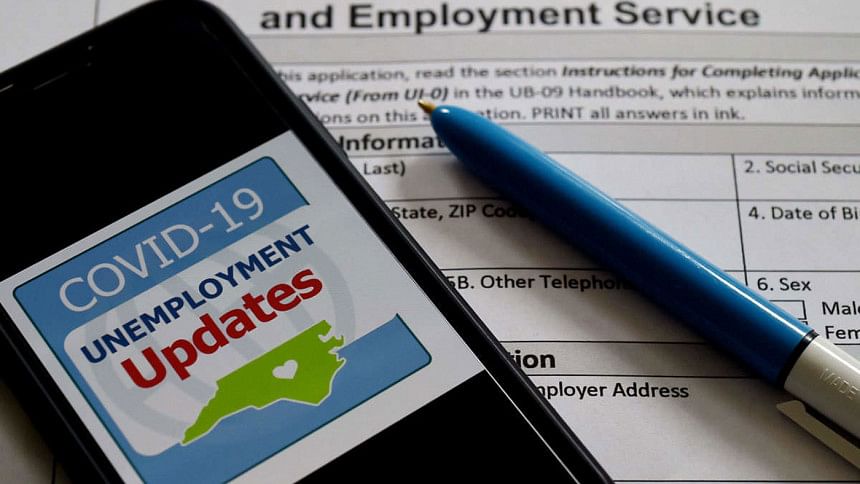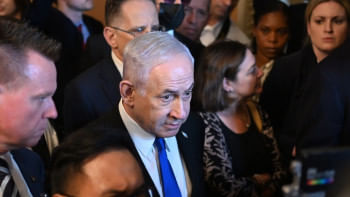Why the world needs a second Marshall Plan

"Little international aid is flowing to poorer regions to fight the epidemic." That was the headline in a major news item circulating in early March, before the spread of Covid-19 was declared to be a "pandemic" and the virus had started its devastating journey out of Wuhan and flattened the economic and geo-economic landscape, upending global commerce. It has been five months since then and, unfortunately, we have been getting the same dire assessment and pleas for assistance all around the world.
After World War II, the US launched an aid programme to help European countries recover from the ravages of the great war. The programme, known as the Marshall Plan, named after the US Secretary of State who played an important role in creating and marketing this plan, was instrumental in pushing the war-devastated countries like Germany, Britain, and France get back on their feet and helped accelerate post-war economic recovery. Today, as we try to undo the economic mayhem created by Covid-19, the international community must see the necessity of a concerted and coordinated effort to launch a second Marshall Plan to hoist up the hard-hit countries, and also to intelligently finance the new economy that will take shape in the post-pandemic era.
Economist Robert Shiller, a Nobel laureate, fears that the economic effects of the pandemic may take a long time to heal. Boston Consulting Group estimates the virus could obliterate as much as USD 16 trillion from global wealth this year, a 7 percent contraction, and stymie growth for five years going forward. By contrast, the 2008 financial crisis erased USD 10 trillion. Global debt, including borrowing by households, governments, and companies, has jumped to more than three times the size of the global economy, the highest ratio on record, according to the Institute of International Finance. Mark Lowcock, United Nations Under-Secretary-General for Humanitarian Affairs and the Emergency Relief Coordinator, warned, "Covid-19 has now affected every country and almost every person on the planet."
The question is, who will fund this new Post-Pandemic Plan (PPP)? The key contributors will have to be the US and the OECD countries, plus international organisations such as the World Bank, IMF, and ADB. Other sources could be SDG assistance, Global Environmental Fund, and the Gulf states. The UN has already issued an urgent solicitation to governments, companies, and the super-rich to contribute to a USD 6.7 billion fund for immediate humanitarian assistance. However, this amount is just a fraction of the hundreds of billions of USD that will be needed to fund the PPP.
The model for PPP could be the recently announced initiative of EU leaders to assist their own member-states. The plan, announced on July 21, combines the multiannual financial framework (MFF) and an extraordinary recovery effort, Next Generation EU (NGEU), into a 1.824 trillion euro financial package for 2021-2027 to help the EU to rebuild after the Covid-19 pandemic, and to support investment in the green and digital transitions.
Unfortunately, some of the rich countries are dragging their feet when it comes to stepping up to the plate and are hesitating to even come forward in response to the UN's earlier call, in March, for the measly USD 2 billion included in the initial appeal. Only half of this money was raised, mainly from contributions by Great Britain, Germany, and the European Commission. Persian Gulf countries, Japan, and Canada are still but minor contributors to this fund.
David Beasley, executive director of the World Food Program, sent out a strong message sounding the alarm by highlighting the possibility of 265 million people being vulnerable to a famine by the end of 2020. The UN appeals to wealthy nations for funding all the time, he said, but the pandemic is "a one-time phenomenon, a catastrophe we're hitting," so it's not unreasonable to ask the wealthiest people and companies to give. He added: "I don't mean just a few million. I'm talking about hundreds of millions of dollars, billions."
The proposed PPP will offer loans and grants to countries in Asia, Africa, and Latin America who have suffered a major downturn in their economy (i.e., 5 percent decline in GDP in the April-June 2020 quarter)—with no strings attached.
The "no strings attached" clause is important to remove any notion that only the market economies or US-allied nations will be the beneficiaries of the PPP. The United Nations or a newly created agency can be entrusted with managing this fund, which is initially proposed to be USD 100 billion—a mere .1 percent of the USD 8 trillion stimulus package rolled out by the world's 20 richest countries to buttress their own economies.
Various ideas have already been floated to that end: a) enlist the legislators in the USA, the UK, and the EU to participate; b) promote equitable and sustainable economic growth; and c) strengthen the healthcare sectors to prevent future pandemics. It has been suggested that the WHO must be restructured to prevent recurrence of mishaps of the past, and countries must be transparent, communicate outbreaks of communicable diseases, and alert WHO, CDC, and regional health bodies with the utmost urgency.
There are several other precedents besides the Marshall Plan to guide this new global initiative. After WWII, the Soviet Union developed its own economic plan, known as the Molotov Plan, for the Eastern European countries that were liberated by the Red Army. In addition to the Marshall Plan, the USA also provided assistance to Japan during the occupation period and, between 1946 and 1952, the magnitude of the transfer was roughly USD 15.2 billion (in 2005 dollars), of which 77 percent was grants and the remaining 23 percent was loans.
Last month, more than two dozen international aid agencies have told the US government that they are "increasingly alarmed" that "little to no US humanitarian assistance has reached those on the front lines". Failure to help will result in delays in economic recovery and even potentially trigger a resurgence of the virus.
Tedros Adhanom, the WHO chief, said that more funds will be necessary in the coming months to meet the global demand for personal protective equipment, medical oxygen in hospital care, and other essential supplies. He also said that less than two-thirds of health facilities globally have hand hygiene stations, while three billion people lack soap and water at home. "If we are to stop Covid-19 or any other source of infection, and keep health workers safe, we must dramatically increase investments in soap, access to water, and alcohol-based hand rubs," he said. "The most devastating and destabilising effects" of the novel coronavirus pandemic "will be felt in the world's poorest countries."
Countries such as Bangladesh that are providing shelter to refugees have repeatedly pointed out that the Rohingya camps have minimal access to personal hygiene amenities, safe drinking water, sanitation, soap, sanitisers or preventive hygiene and protective measures. Unfortunately, millions elsewhere in some countries still do not have access to clean water and sanitation facilities.
What could Bangladesh do to bolster its claim to the resources destined for vulnerable countries? All the ministries, in coordination with the PM's Coronavirus Task Force, and in partnership with the private sector, might want to do the following: 1) track the funding available for developing countries and go for it; 2) seek foreign direct investment (FDI) aggressively; and 3) train and assist the business community to reach out to international businesses and to get ready for the next business boom.
Dr Abdullah Shibli is an economist and works in information technology. Currently, he is a Senior Research Fellow at the International Sustainable Development Institute (ISDI), a think-tank in Boston, USA.

 For all latest news, follow The Daily Star's Google News channel.
For all latest news, follow The Daily Star's Google News channel. 



Comments